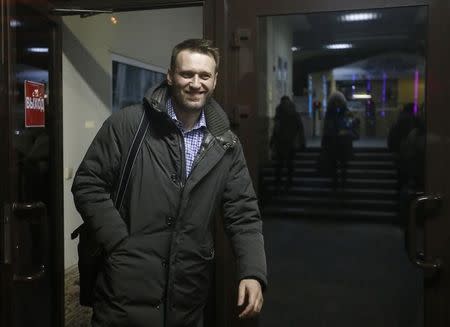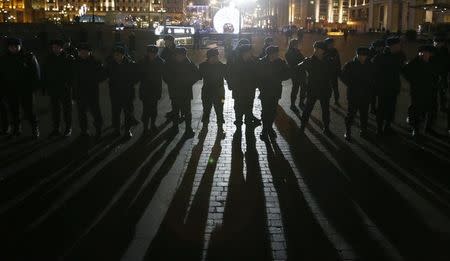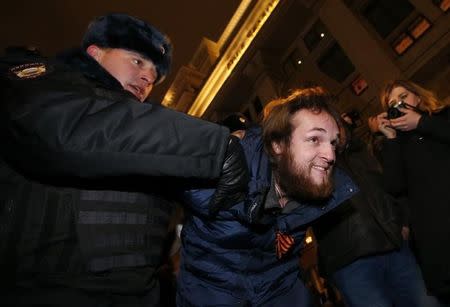Russian court ends house arrest, upholds sentence for Navalny
By Thomas Grove MOSCOW (Reuters) - A Russian court on Tuesday ended house arrest terms for Kremlin critic Alexei Navalny and upheld a suspended three-and-a-half-year prison term for the protest leader in a theft case he says is politically motivated. Navalny and his brother Oleg were convicted last December of stealing nearly 30 million roubles - nearly $500,000 at the current exchange rate - from two firms, including an affiliate of the French cosmetics company Yves Rocher. Russian prosecutors demanded a 10-year prison sentence for Navalny, who led street protests against Vladimir Putin in 2011-12. "We demand that Navalny be sentenced to 10 years in jail," a prosecutor said at the appeal at Moscow city court, quoted by state news agency RIA. The two brothers should be 'isolated from society', he said. Navalny's lawyer Olga Mikhailova said she would appeal the verdict in Russian courts and the European Court of Human Rights to have the suspended sentence lifted. The Navalny brothers were sentenced to three-and-a-half years in prison on Dec. 30. Oleg is serving his time in jail, while Navalny was given a suspended sentence. The Navalny brothers were found guilty of defrauding companies by overcharging them for mail and parcel services provided by their business from 2008 to 2011. Oleg is alleged by prosecutors to have used his position as a senior manager in Russia's Post Office to attract customers for a mail company of which he was registered as the founder. Although Navalny has little chance of mounting a serious challenge to Putin, he has promised to lead 100,000 people on March 1 in protest against policies he says are leading Russia deeper into economic crisis. After the brothers were sentenced, Navalny said Putin's government must be destroyed. Hours later, he violated the terms of his detention by cutting off his house arrest tag to attend a rally of supporters who had gathered near the Kremlin. He was given house arrest terms in February pending the Yves Rocher case. At the Moscow city court, Navalny, who says the case against him is an attempt by the Kremlin to stifle dissent, said prosecutors' demands were "not based on the law and are not worth reviewing", Interfax news agency reported. The U.S. State Department called last year's sentencing a disturbing development "designed to further punish and deter political activism" and the European Union said the verdict seemed to be politically motivated. Putin's popularity ratings have soared since the annexation of Ukraine's Crimea territory and what Russians see as the leader's tough stance against the West over eastern Ukraine. But Navalny hopes to tap anger over a faltering economy expected to contract this year in the face of falling oil prices and Western sanctions. ($1 = 63.0530 roubles) (Editing by Angus MacSwan)




